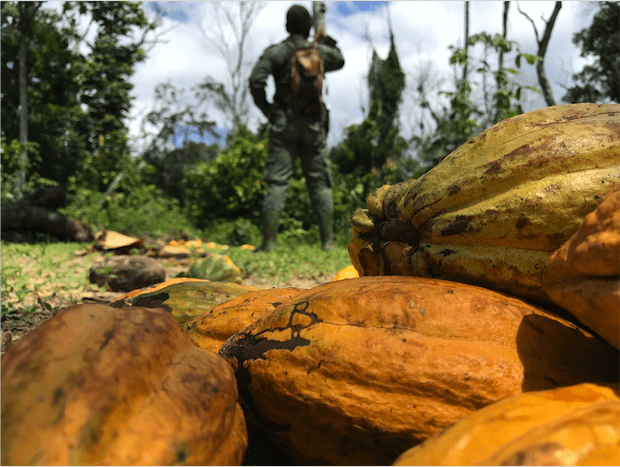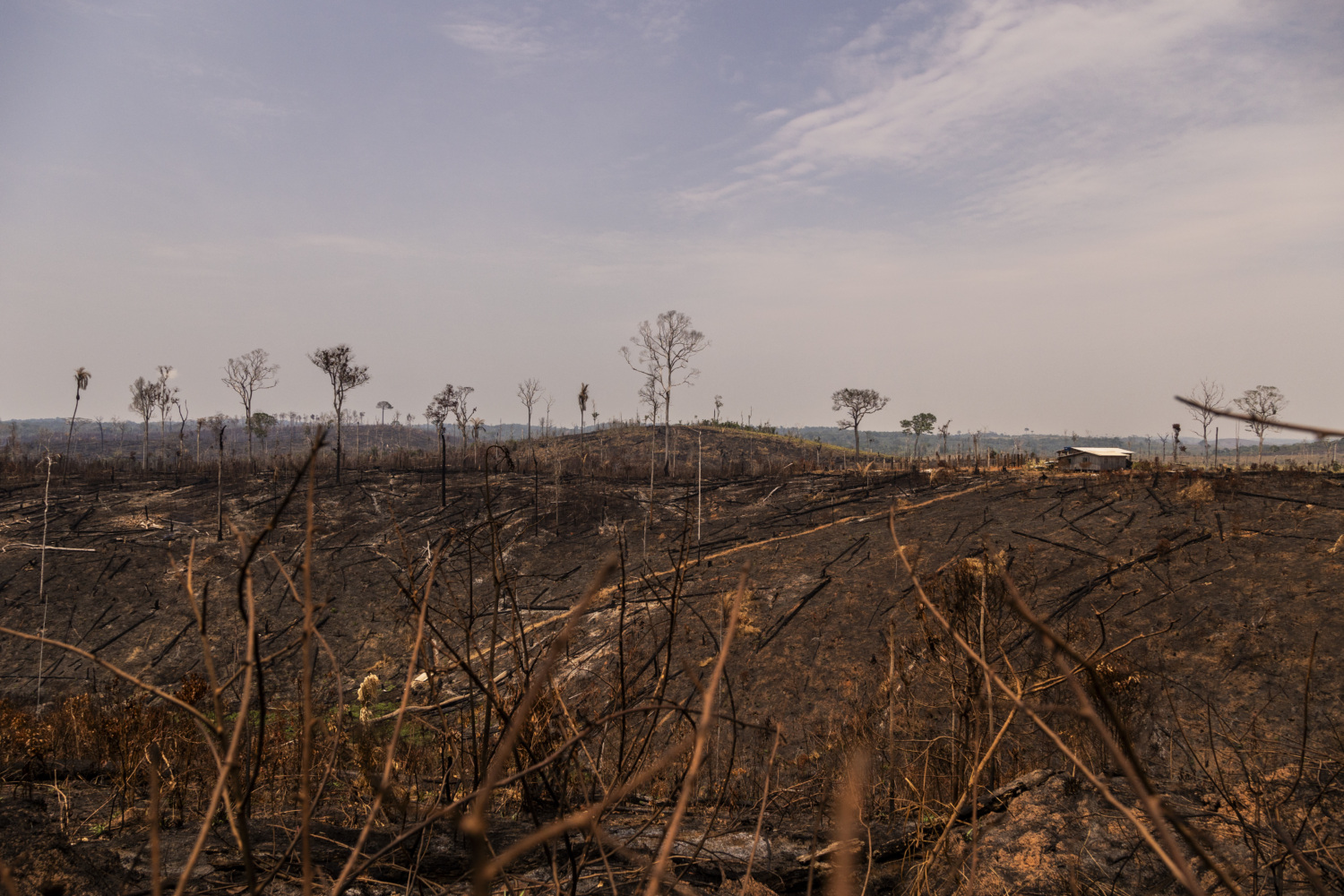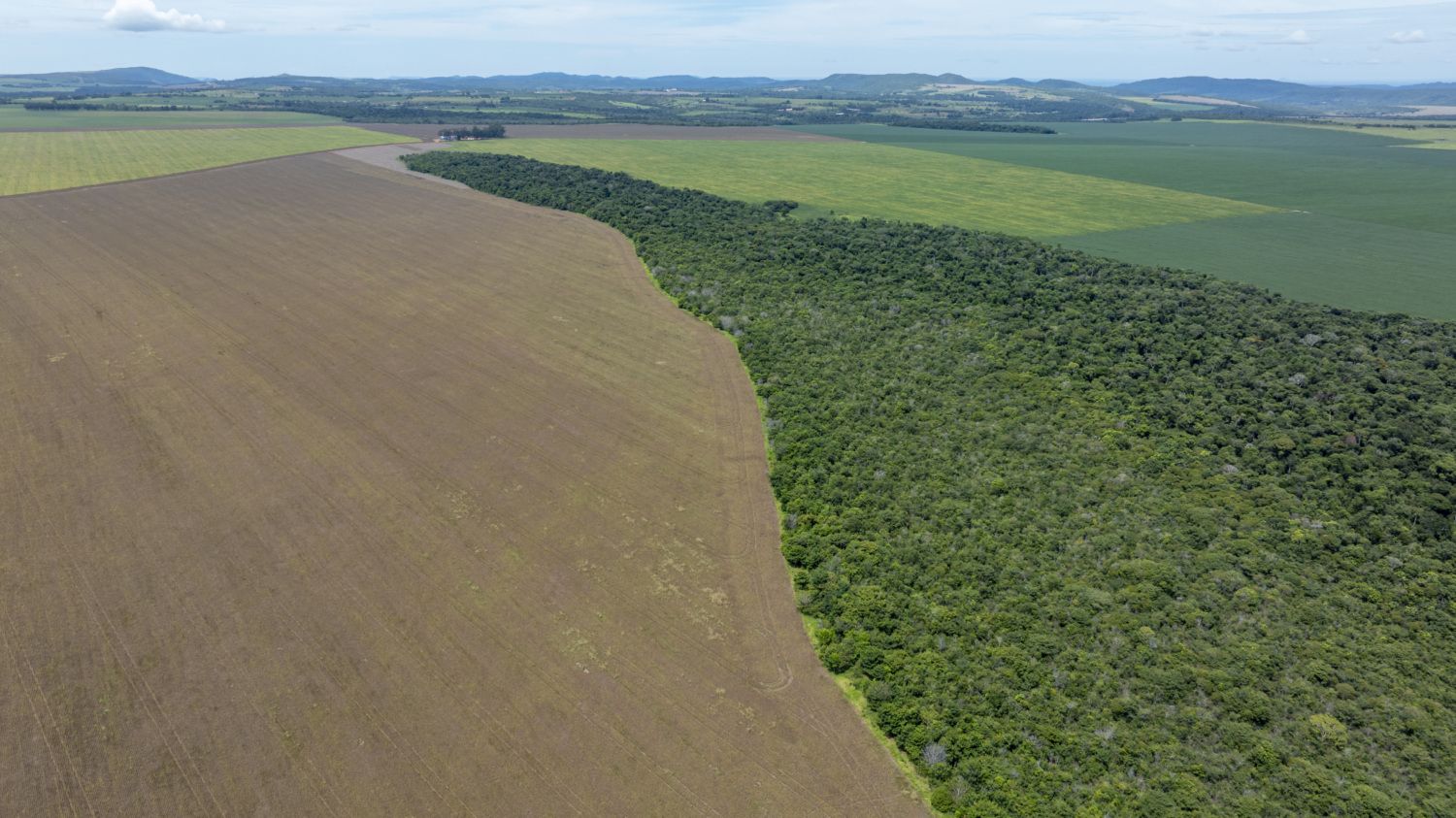
New Report: Corporate Promises Failing to Stop Cocoa-Driven Deforestation

New Report: One Year In, Chocolate Industry Commitments Fail to Stop Deforestation
Over half of Ivorian protected areas reviewed saw deforestation increase after corporate pledges
Read the Report Gallery Français ABIDJAN AND WASHINGTON, DC, DECEMBER 7, 2018 – Despite the chocolate industry’s pledge to cease sourcing cocoa linked to deforestation one year ago, a new Mighty Earth report finds that deforestation in West Africa for cocoa has continued, and in some cases has increased. The report, Behind the Wrapper: Greenwashing in the Chocolate Industry, identifies deforestation hotspots, including in protected areas and national parks, putting some of the last refuges for forest elephants and chimpanzees at risk and threatening the stability of the regional climate. In Côte d’Ivoire, satellite analysis recorded approximately 13,748 hectares of deforestation in the cocoa-growing Southwest region alone, between November 2017 and September 2018. This forest loss is equivalent to 15,000 football fields.
Last year, the world’s largest chocolate and cocoa companies like Hershey’s and Lindt stood beside representatives of the two primary cocoa-producing countries, Côte d’Ivoire and Ghana, and committed to transform their industry, creating the Cocoa and Forests Initiative (CFI). They pledged to end deforestation linked to the production of cocoa, and promised to make the production of cocoa compatible with environmental protection and human rights.
Approaching the one-year anniversary of these commitments, Mighty Earth used a combination of satellites, drones, and on-the-ground field teams to identify how – and if – these commitments are being implemented in Côte d’Ivoire and Ghana.
The report found that over half of the Ivorian forest areas reviewed showed an increase in their rates of deforestation since the announcement of the CFI one year ago. This deforestation violates the most fundamental tenet of the chocolate industry’s and governments’ commitment: to end new cultivation of cocoa in national parks and protected areas.
“The governments of Côte d’Ivoire and Ghana have clearly failed to clamp down on this ongoing deforestation,” said Etelle Higonnet of Mighty Earth. “The chocolate industry has spent the last year celebrating itself for its commitments to immediately cease deforestation from cocoa, but the chocolate industry continues to buy cocoa from suppliers linked to the destruction of some of West Africa’s last forests.”
Mighty Earth’s field team documented that farmers who engaged in deforestation for cocoa were still able to openly sell their cocoa to chocolate companies without repercussions. Farmers caught clearing forest for cocoa told investigators that they did not face sanctions, any cuts in supply chains, or even warnings. In the Goin Debé classified forest, for example, not much had changed since Mighty Earth’s initial 2017 investigation. One forest had been cleared and planted with cocoa just two days before researchers arrived – in the same protected area inspected less than a year prior. The field investigation documented children laboring in cocoa fields as well.
“Mighty Earth applauded the commitments made last year, but we know that corporate pledges are only as valuable as their follow-through,” said Higonnet. “We did document some areas where clear progress has been made, so we know it’s possible for companies and local authorities to make positive change. But companies like Cadbury and SucDen still refuse to accept global deforestation-free policies. Unacceptable deforestation and child labor is still happening in front of our eyes. Industry and the governments in cocoa producing countries must address the unacceptable discrepancy between commitments and implementation. And they must do so urgently, before the next deforestation ‘peak danger season’ – which begins in January – irreversibly damages the ecosystems of West Africa.”


